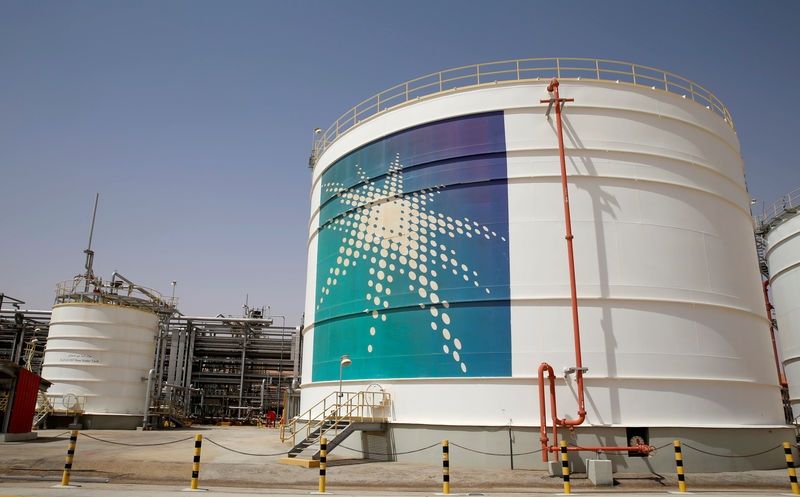By Geoffrey Smith
Investing.com - Saudi Aramco (SE:2222), the world’s most valuable company, got off to a flying start on its debut Wednesday, rising 10% within minutes of opening, the maximum allowed by the Tadawul exchange in Riyadh.
Suspended at 35.20 riyals a share, the company had a market valuation of $1.88 trillion, over 30% more than Microsoft (NASDAQ:MSFT) and Apple (NASDAQ:AAPL) and less than 6% shy of the magical $2 trillion desired by Crown Prince Mohammed bin Salman, the kingdom’s de facto ruler.
The news is hardly a surprise, though, given how tightly the offering has been stage-managed, and western institutional investors are unlikely to regret baulking at the $2 trillion price tag. Nor should retail investors outside the kingdom be too upset at being effectively denied the opportunity.
The fact is that a deal which initially aimed to bring in outside capital to enhance Aramco’s governance and finance the kingdom’s diversification away from oil has mutated into one where Saudi Arabia has moved money from one pocket to another, while institutions and individuals from around the region who already have a high direct or indirect exposure to oil have found another way to get more exposure to it.
According to the company’s own documents, Saudi government institutions have taken up 13.2% of the total offering – some $2 billion – while sovereign wealth funds from Abu Dhabi and Kuwait have reportedly stumped up $5 billion more, eager to avoid a PR disaster for the region’s markets and secure in the knowledge that they are doing the sellers a political favor that can be called in one day. This is not privatization in the classic sense of the word.
Retail demand, also concentrated in Saudi Arabia, has been supported by cut-price loan offers from local banks. Debt-funded retail investments are not, in any other market, seen as the strongest sign of fundamental support for a company’s stock price, and nor should they be here.
All IPOs involve a bit of smoke-and-mirrors as a company transitions to having its value assessed by the market, rather than a handful of key individuals. That’s not just true before the listing but also in the immediate aftermath, where bookrunners are expected to keep volatility within reasonable bounds.
But the “market-smoothing” involved with Aramco (SE:2222) is a horse of a very different color, including government pressure on state investment funds to push the price up, according to the Financial Times’s reporting this week. The FT provided some choice quotes from people close to the deal who for obvious reasons asked not to be named:
“All the focus now is how to reach $2 trillion” and “They’ve been told to keep some powder dry for buying in the secondary market.” (According to ‘people briefed on the matter’)
“They’ve been told it is their duty, and everyone understands what that means.” (According to an adviser to local wealthy families)
“This is another Ritz, through different means.” (another banker working on the deal, in a reference to how ‘MbS’ detained various wealthy Saudis for lengthy stays in the Riyadh Ritz-Carlton on suspicion of corruption, as he consolidated his power).
All of the above need not blind investors to the reality that Saudi Aramco (SE:2222) is now the most egregious cash cow in the publicly-listed corporate universe, a company that produces an essential commodity for the world economy at around $10 a barrel and sells it for around $60. A company that made a profit of $68 billion in the first nine months of the year, despite falling crude prices, a worsening economic outlook and violent attacks on its physical infrastructure. A company that is, plainly, of incredible value.
However, when price formation is influenced to such a huge extent by political concerns and the arbitrary valuation target of an autocrat, it can only validate the governance discount that western investors were insisting on in the first place.
